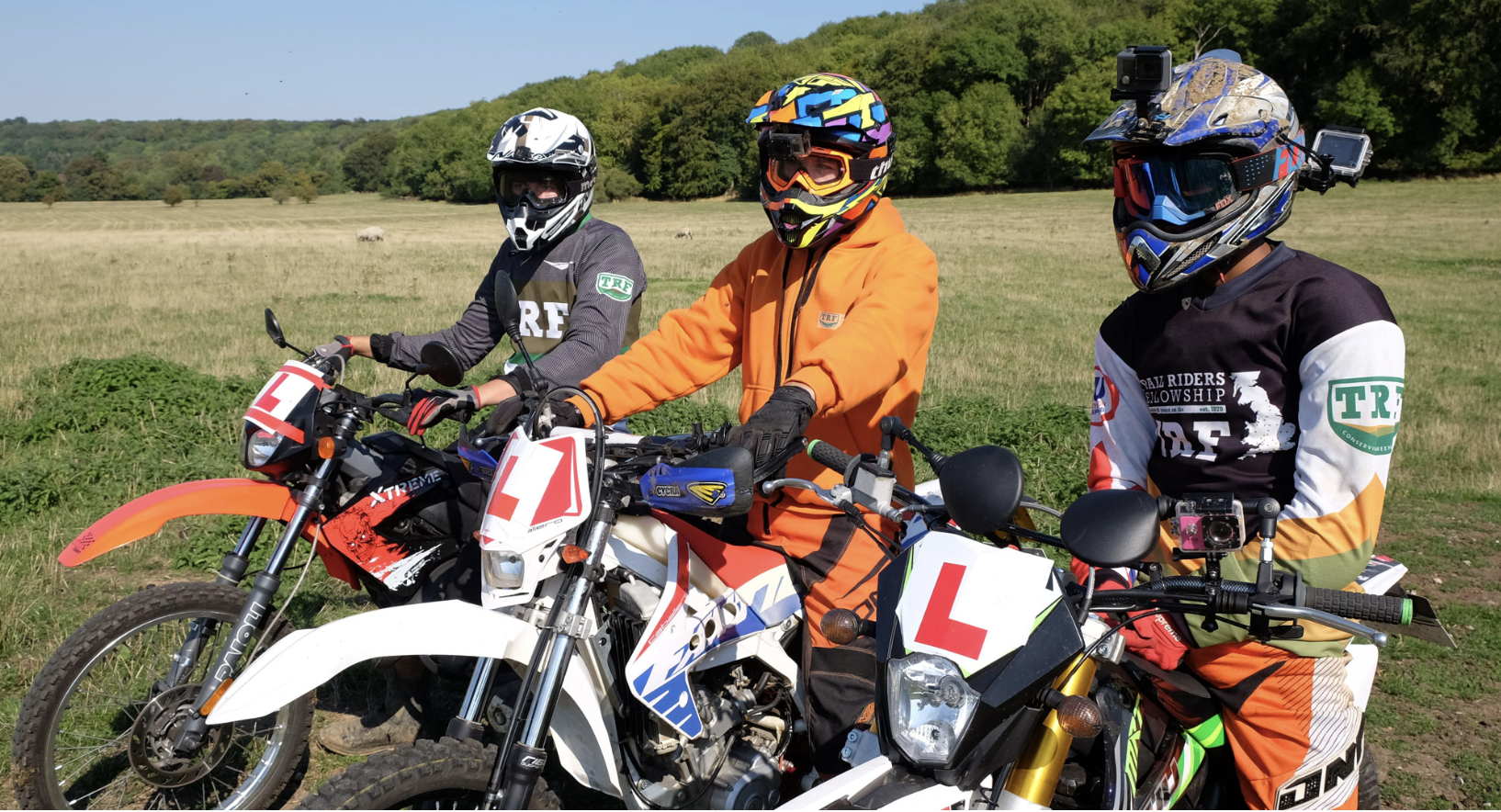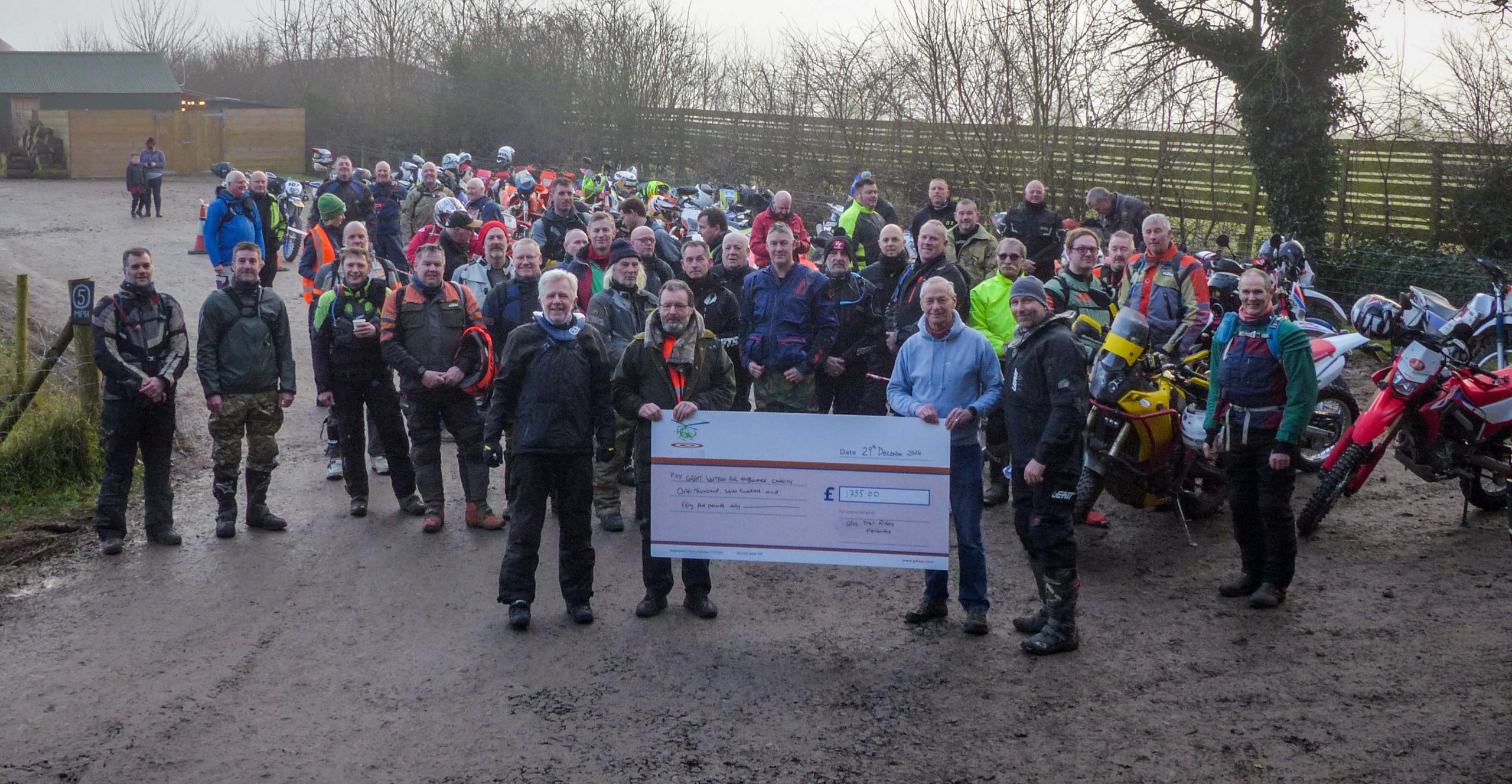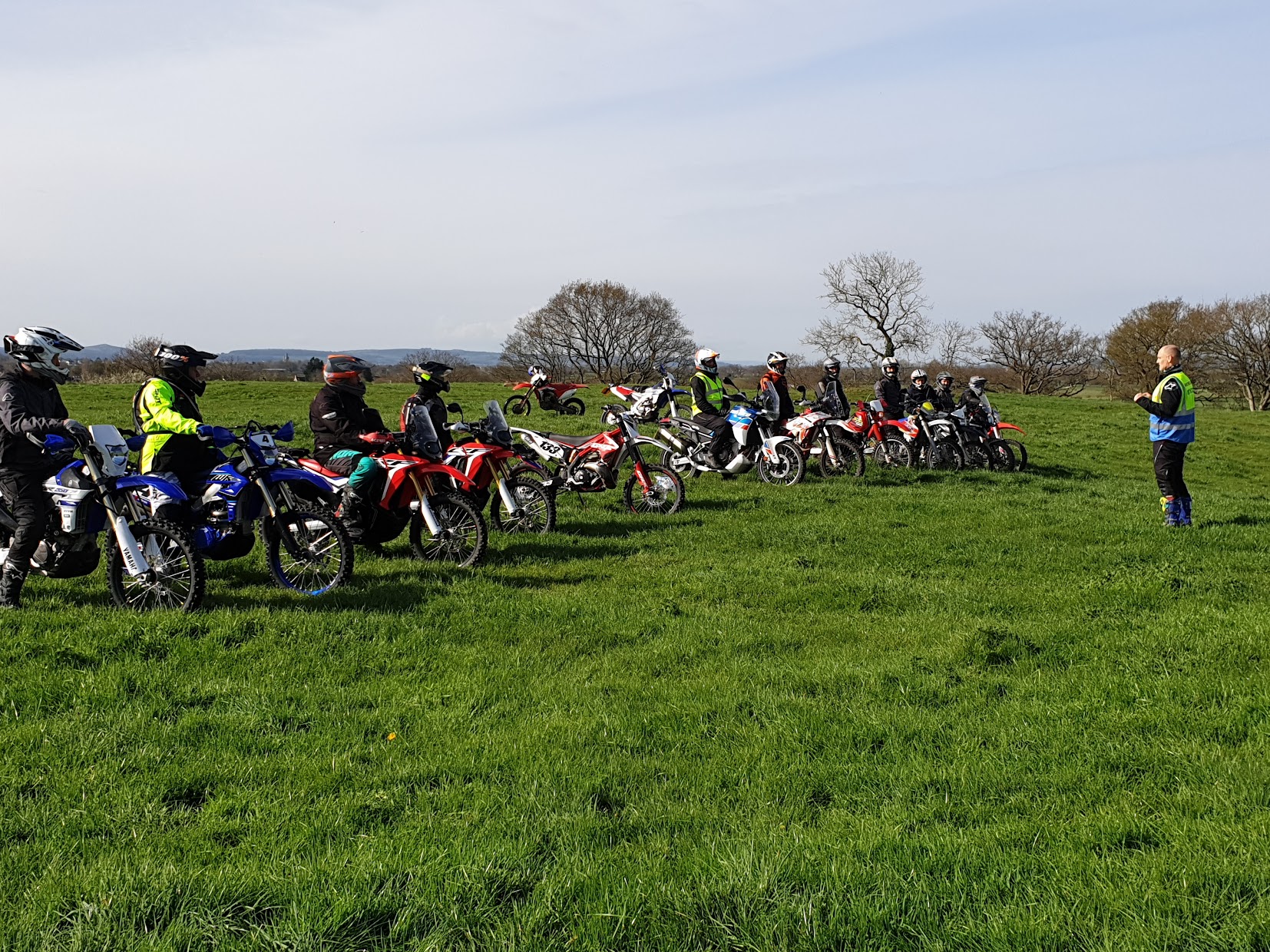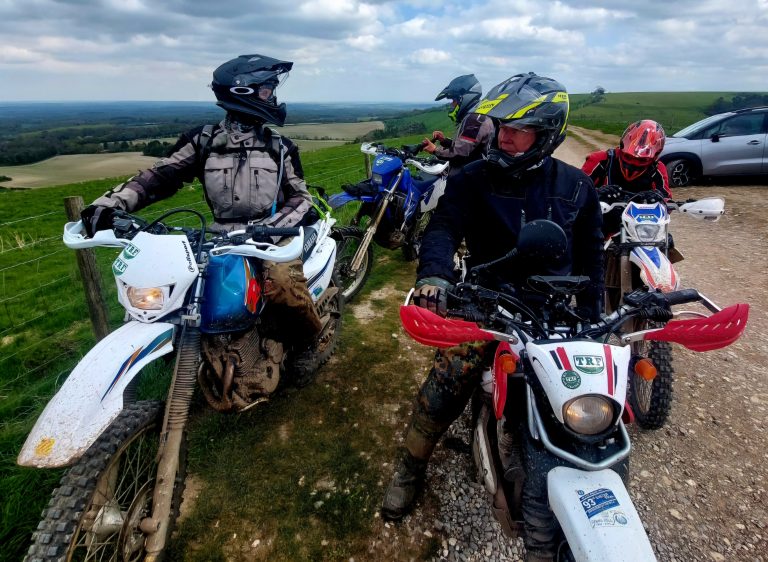
Rider training with Central Bristol TRF
Central Bristol TRF's Phil Yarnall explains how their group started up a rider training programme
The Vision
My pal Jon Williams and I were enjoying a winter evening in the Hare and Hounds in Bath and putting the world to rights… We wondered why so many riders join the TRF and then get hurt in the first few weeks and leave. A light-bulb moment came in that instant and we said, this must be a good reason to run some training. Is it rocket science? Is it that easy? Can anyone do this?
Well, it turns out that it’s not easy, there are qualifications to get, accreditations to achieve and insurance to organise. A venue is required, a syllabus needs to be created, it needs organisation, plus we needed skilled trainers and volunteers, it’s a long list. But hey we are the Central Bristol TRF, referred to by fans as the World’s Number 1 TRF Club – we can do anything!
Also, Jon muttered with a wry smile, “we could get so much more riding from a day on the trails if we didn’t have to carry riders and their bikes over logs!”
A few months later it’s May and the vision has become a reality. The first course was run in early April and we are running subsequent courses from the syllabus throughout 2022. We have six fully accredited ACU Trainers, all are First Aid qualified, and the training syllabus covers Beginners, Intermediates and culminates with a TRF Run Leader training course. Our school has multiple venues to choose from depending on the syllabus level and numbers per group.
The Realisation
In April we ran a course for beginners on a substantial area of land in the countryside near Nailsea, Bristol. The land has everything needed, big area, drops and variable climbs through an old quarry. There are steps, logs and plus some areas that are wet and slippery and some that are rockier. So, it was ideal for our beginners to come and safely learn their craft and enjoy developing new skills and gain confidence.
Adie Jennings is the CBTRF Lead Trainer and is well known as a commercial motorbike trainer at the Dave Thorpe Honda Off Road School, but here he gives his time to the CBTRF for free and thereby helps fund our charity for the preservation of our green roads and byways for the enjoyment of all.
The Trainee Feedback
The first course had 10 attendees, nine men and one of our female club members, varying in experience. Their age span went from 20 somethings to 50 somethings and all of them wanted a beginner’s course to safely learn new skills, gain confidence on the trails and have some fun! Judging from the feedback from the trainees, we can safely say that the training team delivered.


The Realisation
In April we ran a course for beginners on a substantial area of land in the countryside near Nailsea, Bristol. The land has everything needed, big area, drops and variable climbs through an old quarry. There are steps, logs and plus some areas that are wet and slippery and some that are rockier. So, it was ideal for our beginners to come and safely learn their craft and enjoy developing new skills and gain confidence.
Adie Jennings is the CBTRF Lead Trainer and is well known as a commercial motorbike trainer at the Dave Thorpe Honda Off Road School, but here he gives his time to the CBTRF for free and thereby helps fund our charity for the preservation of our green roads and byways for the enjoyment of all.
The Trainee Feedback
The first course had 10 attendees, nine men and one of our female club members, varying in experience. Their age span went from 20 somethings to 50 somethings and all of them wanted a beginner’s course to safely learn new skills, gain confidence on the trails and have some fun! Judging from the feedback from the trainees, we can safely say that the training team delivered.
The CBTRF Syllabus
The skills syllabus for beginners ranges from the basics of how to set up your bike to be safely in control and ergonomically correct for trail riding, to riding balance beams or wooden sleepers, to improve your rut riding and climbing or descending hills effectively. Not only did the team teach how to climb safely but also how to recover on a hill when you need to turn back or it doesn’t go as planned.
The You-Must-Know-This-Knowledge taught on the CBTRF Beginners Syllabus for Trail Riding that day included: understanding the relationship between clutch, throttle and how that affects traction; the ability to brake effectively to the point where you could force the rear or the front wheel to lock up and keep control to avoid a tumble; understanding peg weighting and its impact on steering and control; body movement to steer and control the bike; how riding a balance beam without falling off combined with head positioning enables easier riding of ruts; the list of skills went on and the fun times rolled.
All of these skills are simple basics when learnt in the safety of the training field, but more importantly they pay back in spades when the trail rider experiences situations requiring them on the trail.
The mixture of instruction followed by lesson demonstrations, the trainee then learning that skill through being able to practise it with assistance from the trainers is a powerful mix which is key to the benefit of the CBTRF Trail Riding courses.
The skills syllabus for beginners ranges from the basics of how to set up your bike to be safely in control and ergonomically correct for trail riding, to riding balance beams or wooden sleepers, to improve your rut riding and climbing or descending hills effectively
The CBTRF Approach
The course started at 9.00am and ran the whole day with four trainers in the North Somerset sunshine with breaks for drinks and rests, plus a time off the training ground for lunch. The bike setup basics were eye openers for some; the importance of ergonomics for a trail bike and its rider should not be underestimated. The location and relative angles of the hand and foot controls, the positioning of the bars and how these interact with the rider can transform the rider’s abilities and safety.
Teaching the importance of body positioning and how vital the head placement is, as well as using your brain when controlling the bike, were just some of the nuggets of knowledge passed on and then put into practice on the training field.
The training team quietly observed and assessed each trainee when they were doing the early exercises and then were able to tailor the course to each person as they went through the day. This assessment and tailoring, with enough trainers to be able to support each trainee to maximise the impact of their learning time and achieve improvements, whilst in a safe learning environment, is the first principle of the CBTRF training approach.
The mixture of instruction followed by lesson demonstrations, the trainee then learning that skill through being able to practise it with assistance from the trainers is a powerful mix which is key to the benefit of the CBTRF Trail Riding courses.
The day was finally rounded off with some free form time on a short track on the far side of the training lands. With a mix of climbs, descents, turns and obstacles the trainees were able to put into practice all the skills they had learned and get that big grin all over their faces!
At the end of the training day the attendees got their personalised CBTRF course completion certificates and at the following club-night we awarded the CBTRF Grand Cup Trainee Trophy to the best trainee of the day!
At that same club meeting we shared with the trainees, and all members, our post-training CBTRF events program, in which our newly trained members are now more than capable of safely taking part and enjoying. So as our Training Officer, Jon Williams, would say: “Job Done!”
The Future
One of our trainees that day, Paul Esmiley, pointed the way to the future when he said:
“It would be great to be able to build on the skills learned on the day in future training sessions. Really appreciate the effort that goes into these days; it’s a great thing for the club to offer.”
So not only are we running other CBTRF Beginners Courses for Trail Riding, but we have also recently added another venue, the area known as Lambs Lair, ready for our next step that we call the CBTRF Intermediate Training Course.
Related Posts

2025 KTM 390 Adventure R & X – model reveal
2025 KTM 390 ADVENTURE R (& X) An 890 Adventure R mini-me? Hot on the heels of the KTM 390 Enduro R, comes the 390

DfT start positive dialogue on motorcycle licensing & safety
Ministers and the DfT Start Positive Dialogue on Motorcycle Licensing and Safety Transport Minister Lillian Greenwood confirms that the government is considering options to review

Gloucester TRF’s Christmas Charity Run
Gloucester TRF’s Christmas charity fundraiser a huge success £1755 raised for Great Western Air Ambulance The Gloucester TRF ran a charity ride out in aid




